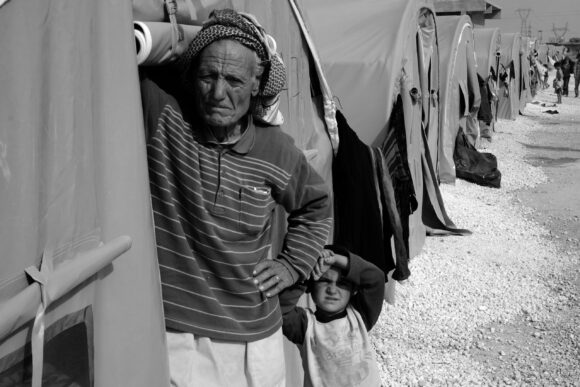More than 256,000 Afghans left Iran in June alone, the UN migration agency has reported, as Tehran enforces a strict repatriation deadline. The International Organization for Migration (IOM) said this marked a sharp increase in returns, with a record of 28,000 Afghans departing in a single day, driven by Iran’s ultimatum for undocumented migrants to exit the country by 6 July.
Since the Taliban’s return to power in 2021, the number of Afghans seeking refuge in Iran has grown significantly. Many live in precarious conditions without legal status, facing mounting systemic discrimination and anti-Afghan sentiment. The IOM noted that over 700,000 Afghans have left Iran since January, with 70% forcibly returned, according to spokesperson Avand Azeez Agha in a statement to AFP.
The surge in repatriations has intensified following recent hostilities between Iran and Israel, which began with Israeli strikes on Iranian military and nuclear infrastructure in mid-June. Though a ceasefire has since been established, its fallout continues. Iranian authorities reportedly began arresting Afghan migrants suspected of espionage, accusing them of collaborating with Israel, a claim that has further fueled deportations.
The semi-official Mehr News Agency reported that police were instructed to expedite removals, though Iranian law enforcement later denied such directives. Afghan migrants interviewed by BBC Persian expressed fear and vulnerability, citing body searches and phone inspections at checkpoints. “We’re scared to go anywhere because they might accuse us of being spies,” said one migrant, whose identity has been withheld for safety reasons.
Even Afghans with valid visas have reportedly faced forced deportations. Detainees released later recounted being accused of betrayal, despite holding legitimate documents. Incidents of public harassment have also surged, with some Iranians hurling accusations at Afghan migrants, labeling them as Israeli agents.
Arafat Jamal, the UN’s refugee coordinator for Afghanistan, stressed that although the Israel-Iran conflict had ended, its repercussions linger. “This movement predates the war, but it has been exacerbated by it,” he told BBC Pashto, noting that many returnees spoke of coercion and intimidation behind their departure.
Legal and social barriers remain entrenched for Afghans in Iran. They are ineligible for citizenship even if born there and face restrictions on employment, banking, telecommunications, and housing. Many are limited to low-paying, physically demanding jobs and are excluded from numerous public services.
The Iranian government has also called on the public to report undocumented Afghans, deepening fears within migrant communities. “There are oppressors here, and there are oppressors there,” said one Afghan migrant. “We migrants have never been free.” Another warned, “The future for Afghans living in Iran looks really bleak,” describing law enforcement’s treatment as violent and degrading. Reports say even the Basij volunteer militia has been mobilized to arrest Afghans.
Iran’s crackdown follows a similar campaign by Pakistan, which has also ramped up efforts to expel undocumented Afghans, citing domestic pressure and strained resources.
UN officials estimate that more than one million Afghan refugees have returned from Iran and Pakistan in 2025 alone. Mr. Jamal acknowledged the longstanding support of both countries in hosting millions of Afghans during decades of conflict but called for a coordinated regional response to the growing crisis.
He also warned that humanitarian operations at border areas are overwhelmed. “There are simply too many people coming back,” he said, highlighting the need for urgent international support.
On Saturday, Taliban Deputy Prime Minister Maulvi Abdul Salam Hanafi confirmed that negotiations with Iranian officials were ongoing. Afghanistan’s transport minister added that the Taliban is expediting transportation for returnees from the borders to their hometowns, aiming to relieve some of the burden on overwhelmed entry points.
The unfolding situation underscores the precarious plight of Afghan refugees caught in the crossfire of geopolitics, economic strain, and shifting regional alliances.






